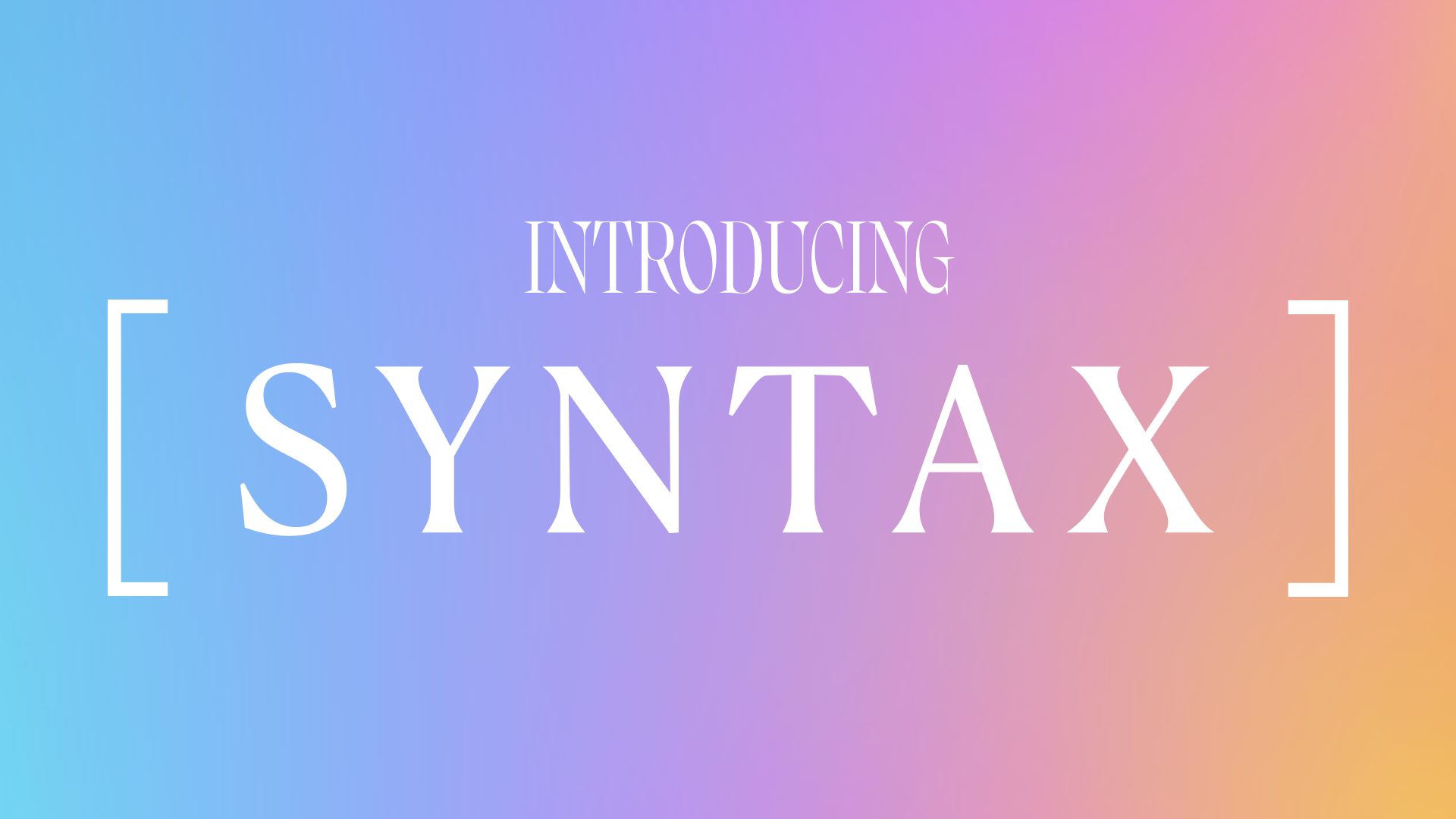
Breaking Down Barriers to Value-Based Care Contracting: Simplifying the process through collaboration, real-time insights and comprehensive data
Value-based care (VBC) represents a seismic shift in healthcare delivery, moving patient outcomes to center stage. Unlike the traditional fee-for-service model, which pays providers based on the volume of tests and office visits, value-based care models reward providers for delivering more effective care. As such, value-based care has the potential to drastically increase quality and reduce costs across the American healthcare system.

But while payers and providers share the same high-level goals of improving outcomes and reducing cost, a deeply flawed contracting process is holding them back from unlocking the potential of value-based care. Providers and patients speak different contractual languages and face a hodge-podge of analog technology that makes the contracting process extremely difficult. It can take six to nine months to create a one-year value-based agreement, a byzantine process that includes months of redlining.
To accelerate contracting and the adoption of VBC models, providers and insurers need a solution that helps them collaborate so they can align their values, mission, objectives and financial incentives.
Barriers to Developing Effective Value-Based Care Models
The Centers for Medicare and Medicaid Services (CMS) has pledged that all Medicare beneficiaries must be in a value-based care relationship by 2030. As a result, healthcare systems and retail players such as CVS/Aetna and Amazon are ramping up investments in value-based initiatives.
McKinsey & Co. estimates that the number of patients treated by providers in the value-based care landscape could double in the next five years, with an anticipated 15% annual growth rate. This level of explosive growth could create $1 trillion in value for payers, providers and investors.
The industry already saw the positives of value-based care models during the pandemic. COVID-related shutdowns led to a 20% reduction in inpatient volume, a 35% reduction in outpatient volume and cost tens of billions in provider revenue, according to the American Hospital Association (AHA). However, organizations like the Capital District Physicians’ Health Plan that had already moved to value-based care models were largely protected from those risks.
Yet for too many insurers and providers, value-based care remains largely theoretical. Roughly 85% of insurers surveyed say that modeling value-based contracts effectively is their biggest barrier to adopting more value-based agreements. In fact, nearly all payer executives say they have no contract management system, have an outdated system, or use manual processes such as paper forms, Excel spreadsheets and hand-keyed data.
Within the landscape of VBC solutions, the majority of existing Software-as-a-Service (SaaS) systems largely ignore the contracting process, focusing instead on care coordination or population health insights. It’s as if everyone assumed value-based models were one-size-fits-all and ignored the space of modeling and “best fit” program design. This is why health plans struggle to meaningfully engage providers in risk sharing programs. You can’t fix poor design downstream and no amount of care intervention will solve a payment structure that is flawed from the start.
As part of its ongoing efforts to power healthcare innovation, Redesign Health is leading the way on researching and ideating on the challenges that impede value-based care. Now, Redesign Health is taking the next step by seeding and launching Syntax, a game-changing solution designed to accelerate VBC adoption for healthcare plans and providers.

Introducing Syntax
Syntax is an enterprise SaaS platform that simplifies and demystifies how contracts are created and completed for all parties involved. With Syntax, teams can obtain a full view into what a value-based contract will look like in practice. Then, they can use the platform to:
Model: Teams can model contract scenarios by rapidly understanding Affinity (provider panel experience), configuring Attribution (plan assignment rules) and designing Incentive Terms using Contract Templates or building their own from scratch.
Measure: Teams can refresh performance measurement in real time, allowing team members to preview emerging trends for course correction and value alignment.
Manage: Syntax serves as a single source of truth for value-based contracting, creating better management, collaboration and accurate financial reporting.
Much like business tools such as Google Docs, Notion, and Asana, Syntax reimagines the contracting process in a virtual collaborative workspace. In this secure, dynamic environment, providers, payers and their teams can share real-time insights, build trust and develop value-based contracts in a fraction of the time that it takes today.
Two elements form the core of the Syntax platform:
Data and contract ingestion: The flexible and secure, cloud-based data platform within Syntax gives all parties involved in the contracting process access to the same complete set of data and real-time information. This allows health plan actuaries, network managers, analysts and providers to work from the same set of data, compare savings, revenue, quality metrics and trends and negotiate contracts across one shared system.
A two-sided virtual workspace: Armed with the actionable information they need, teams can use the virtual workspace within Syntax to model contract terms and incentive design. Multiple collaboration tools allow health plan actuaries and analysts to easily connect with network managers who negotiate contracts with providers. Because Syntax users can connect and communicate online from any location, the virtual workspace facilitates open, candid discussions that build trust.

Meet the Syntax Team
Redesign Health has formed an expert team of value-based care veteran professionals to lead Syntax:
Rachael Jones, MPA, CEO and Founder, is an award-winning healthcare executive and thought leader in the value-based care space. She brings more than 20 years of experience transforming healthcare through strategic leadership, operational oversight, product strategy, profit-and-loss management, and data-driven analytics. She most recently served as Senior Vice President of Performance Analytics and Quality at Cotiviti, where she and her team updated, refreshed and delivered industry-leading flagship analytics tools and AI solutions. She’s also worked extensively in the payer space, spending five years at Elevance Health/Anthem, leading actuarial teams, and making buying decisions on value-based care platforms.
Emily Walker, Chief Analytics Officer, is an accomplished leader with experience as a buyer of value-based solutions and leader of actuarial teams. Her extensive industry experience includes vendor management, provider contract and payment method modeling and end-to-end execution of value-based programming. She most recently served as VP of Payment Models, Analytics and Reporting for Elevance Health/Anthem, leading a team of more than 100 actuaries, economists, statisticians, business analysts, financial analysis, product developers and accountants. Her team led the end-to-end execution of value-based programs, providing operational deliverables, solutions enablement and industry-leading analytic insights.
Rami ElGawly, Head of Product, formerly Director of Product Management at Phreesia and before that DocASAP, Rami has years of experience leading product teams in digital health. He was a Product leader at Evolent Health, where he started his first tour in value-based care helping build clinical decision systems, risk adjustment and clinical analytics. Rami started his career in EHRs at eClinical Works and worked in interoperability at Secure Exchange Solutions.
Will Hudgins, Lead Engineer, is committed to creating positive change in the transformation of healthcare through data. He spent three years building Babylon Health’s data strategy, creating a data warehouse and data lake that generated strategic clinical insights for the startup company. He’s also led EHR integration efforts to reduce clinician toil and enable value-based care at scale. Prior to his time at Babylon, Hudgins worked as a data engineer for several well-known companies, including The Home Depot.
Campbell Hand, Chief of Staff, is an entrepreneur who has been an integral part of the founding teams of several healthcare-based companies. He most recently served as Co-Founder and Chief of Staff for Fort Health, a pediatric behavioral health company built at Redesign Health, and also was the Co-Founder & CEO of Perry Street House, a male addiction treatment facility, from 2015-2018.
Throughout the process of building the company, the founding team at Syntax has received support from industry experts within Redesign Health and from across the broader healthcare landscape:
Missy Krasner, Venture Chair at Redesign Health, previously with Amazon
Jac Joubert, Chief Actuary at Chenmed, previously with Cityblock Health and Oliver Wyman
Chris Dugan, VP of Health Services Strategy at Hinge Health, previously with Aetna and Humana
Fawad Butt, Executive-In-Residence at Canvas Ventures, previously with Kaiser and United Healthcare
Juliette Price, CSO at Helgerson Solutions Group, previously with SUNY and Albany Promise
Francois De Brantes, Former SVP at Signify Health, previously with Altarum
Blackford Middleton, Former CIO & Founder at Apertiva, previously with Mass General Brigham
Making Good on the Promise of Value-Based Care
Value-based care is already proven to deliver tangible benefits to providers, healthcare plans and patients. But manual processes, constant redlining and a lack of visibility hamper the industry’s ability to create new value-based models. By giving everyone access to the same information and empowering real-time communication, Syntax helps payers and providers implement the most effective value-based programs possible.
![No alternate text]() Redesign HealthKins Raises $7 Million Series A and Inks Strategic Investment to Bring Kins to New Markets
Redesign HealthKins Raises $7 Million Series A and Inks Strategic Investment to Bring Kins to New MarketsInvestment will accelerate Kins’ hybrid physical therapy expansion into Washington, D.C.; Maryland and Virginia
July 24, 2024
![No alternate text]() Redesign HealthGiving Independent Medical Practices the Cash Flow They Need to Thrive
Redesign HealthGiving Independent Medical Practices the Cash Flow They Need to ThriveThrivory is an end-to-end financial partner, providing convenient, risk-free access to capital
May 14, 2024
![No alternate text]() Redesign HealthMaking Comprehensive Care a Reality for Residents of Senior Living Communities
Redesign HealthMaking Comprehensive Care a Reality for Residents of Senior Living CommunitiesTroupe Health extends the reach of primary care physicians to improve health outcomes for older adults
April 09, 2024
![No alternate text]() Redesign HealthPioneering Specialist Physician Enablement:
Redesign HealthPioneering Specialist Physician Enablement:WindRose Acquires Company Built at Redesign Health
WindRose Acquires Company Built at Redesign Health
April 02, 2024
![No alternate text]() Redesign HealthIntroducing Redesign Health’s Newest Venture Chair
Redesign HealthIntroducing Redesign Health’s Newest Venture ChairLou Shapiro will leverage his four decades of healthcare and leadership expertise to guide Operating Companies at Redesign Health
March 26, 2024
![No alternate text]() Redesign HealthSix Takeaways on Healthcare Innovation from ViVE 2024
Redesign HealthSix Takeaways on Healthcare Innovation from ViVE 2024Redesign Health attended ViVE 2024 in Los Angeles. We're sharing the six key takeaways our team observed on what’s driving the industry forward.
March 11, 2024
![No alternate text]() EndocrinologyRedesign HealthInvesting in the Future of Diabetes Care
EndocrinologyRedesign HealthInvesting in the Future of Diabetes CareWith a combination of insights, technology and care, Valendo Health empowers independent endocrinologists to grow their practices
March 05, 2024
![No alternate text]() Redesign HealthRewriting the Script on Comprehensive Medication Management
Redesign HealthRewriting the Script on Comprehensive Medication ManagementScriptology combines an extended clinical pharmacy team with technology, creating proven benefits for patients, providers and payers
February 21, 2024
![No alternate text]() Redesign Health2023 Redesign Health Recap
Redesign Health2023 Redesign Health RecapAs we wrap up the year, here's a recap of some of our most exciting moments.
December 14, 2023
![No alternate text]() DementiaRedesign HealthBridging the Gaps in Dementia Care for Providers, Patients and Caregivers
DementiaRedesign HealthBridging the Gaps in Dementia Care for Providers, Patients and CaregiversHarmonic Health leverages technology and expertise to create a new evidence-based dementia care model.
November 21, 2023
![No alternate text]() Redesign HealthReshaping the Hair Restoration Journey
Redesign HealthReshaping the Hair Restoration JourneyAmple combines clinical expertise and personalized care to make hair restoration approachable and empowering.
November 02, 2023
![No alternate text]() Redesign HealthUnlocking Innovation: The Power of Strategic Partnerships in Healthcare
Redesign HealthUnlocking Innovation: The Power of Strategic Partnerships in HealthcareAt the 2023 Re View Summit, we brought together industry experts from across the healthcare landscape for a discussion that explored how startups can more effectively partner with incumbents. Here are their insights.
October 26, 2023
![No alternate text]() Redesign HealthUnleashing the Power of Generative AI and LLMs in Healthcare: Insights from Industry Experts
Redesign HealthUnleashing the Power of Generative AI and LLMs in Healthcare: Insights from Industry ExpertsAt the 2023 Re View Summit, AI Panelists explored how CEOs can get started, viable opportunities within the market and what investors and health systems are seeking when it comes to practical solutions.
October 24, 2023
![No alternate text]() Redesign HealthHLTH 2023: 6 Emerging Microtrends for Healthcare Innovators
Redesign HealthHLTH 2023: 6 Emerging Microtrends for Healthcare InnovatorsWe're sharing the six microtrends we kept hearing about at HLTH 2023 that we expect to shape the early-stage company landscape in the years to come.
October 18, 2023
![No alternate text]() CEORedesign HealthFrom Startups to Scaling: Key Takeaways from the 2023 Re View Summit
CEORedesign HealthFrom Startups to Scaling: Key Takeaways from the 2023 Re View SummitDuring our recent Re View Summit, we gathered 40+ CEOs from the Redesign Health community to tackle some of the most pressing issues in healthcare through panels, workshops and networking. Here are some of the highlights.
October 12, 2023
![No alternate text]() CardiologyRedesign HealthUnlocking the Full Potential of Independent Cardiology Practices
CardiologyRedesign HealthUnlocking the Full Potential of Independent Cardiology PracticesCardiology care delivery enablement platform CardioOne builds early momentum through partnerships with independent cardiology practices and MedAxiom.
October 03, 2023
![No alternate text]() Redesign HealthDavid Entwistle, President and CEO of Stanford Health Care, Joins Redesign Health Board of Directors
Redesign HealthDavid Entwistle, President and CEO of Stanford Health Care, Joins Redesign Health Board of DirectorsWe’re thrilled to welcome David Entwistle, President and CEO of Stanford Health Care, to our Board of Directors.
August 17, 2023
![No alternate text]() Chronic CareRedesign HealthInfusing Innovation Into Care for Chronic Illnesses
Chronic CareRedesign HealthInfusing Innovation Into Care for Chronic IllnessesUptiv Health transforms the transactional treatment model centered on pharmaceutical support to one that’s focused on the whole person, empowering patients while prioritizing their health and well-being.
August 10, 2023
![No alternate text]() Mental HealthRedesign HealthMaking a Clinical Impact: UpLift's Integrated Behavioral Health Model Increases Access to High-Quality Psychotherapy and Psychiatry
Mental HealthRedesign HealthMaking a Clinical Impact: UpLift's Integrated Behavioral Health Model Increases Access to High-Quality Psychotherapy and PsychiatryEarly traction secures $10.7M in Series A funding and a new Medicaid MCO partnership that will form a first-of-its-kind clinically integrated network (CIN) to expand behavioral healthcare access for Medicaid members in Washington, D.C.
August 08, 2023
![No alternate text]() CaregivingRedesign HealthModernizing the Caregiving Experience
CaregivingRedesign HealthModernizing the Caregiving ExperienceWe’re proud to introduce a groundbreaking platform designed to meet caregivers’ unique challenges.
August 01, 2023
![No alternate text]() Healthcare LaborRedesign HealthReimagining the Healthcare Labor Pool Through Innovation
Healthcare LaborRedesign HealthReimagining the Healthcare Labor Pool Through InnovationIn our latest blog post, we look at trends shaping the imbalance of healthcare staffing supply and demand and explore the ecosystem of Operating Companies at Redesign Health that we’ve built to help health systems ease the labor crisis.
July 28, 2023
![No alternate text]() Value-Based CareRedesign HealthBreaking Down Barriers to Value-Based Care Contracting: Simplifying the process through collaboration, real-time insights and comprehensive data
Value-Based CareRedesign HealthBreaking Down Barriers to Value-Based Care Contracting: Simplifying the process through collaboration, real-time insights and comprehensive dataSyntax is an enterprise SaaS platform that simplifies and demystifies how contracts are created and completed for all parties involved. With Syntax, teams can obtain a full view into what a value-based contract will look like in practice.
July 18, 2023
![No alternate text]() Cardiac CareRedesign HealthExpanding Access to Cardiac Rehabilitation with Whole-Person, At-Home Care
Cardiac CareRedesign HealthExpanding Access to Cardiac Rehabilitation with Whole-Person, At-Home CareEach year, more than 1 million Americans become eligible for cardiac rehabilitation. We’re thrilled to launch a new company designed to reshape the way patients receive cardiac rehabilitation.
June 15, 2023
![No alternate text]() Redesign HealthRedesign Health: A 5-Year Milestone of Innovation & Impact
Redesign HealthRedesign Health: A 5-Year Milestone of Innovation & ImpactAs we stand at the cusp of the next wave of change, we wanted to look back on what we’ve done so far and share where we — and the industry — are going next.
May 31, 2023
![No alternate text]() Redesign HealthCelebrating Five Years of Redesigning Health for Everyone
Redesign HealthCelebrating Five Years of Redesigning Health for EveryoneFive years ago, we realized the only way to create real change in healthcare is at scale. Now, we’re proud to have powered the launch of more than 50 healthcare companies.
April 20, 2023
![No alternate text]() Redesign HealthRedefining Pet Care for Modern Pet Parents and Veterinarians
Redesign HealthRedefining Pet Care for Modern Pet Parents and VeterinariansToday’s pet owners don’t just adopt animals—they treat them as members of their family.
April 12, 2023
![No alternate text]() Our Key Takeaways from ViVE 2023
Our Key Takeaways from ViVE 2023Redesign Health attended ViVE 2023 in Nashville last week, where Redesigners and leaders from our Operating Companies connected with industry innovators and attended thought provoking panel discussions.
April 03, 2023
![No alternate text]() Lesley SolomonFilling the Critical Gap in Women’s Health Care
Lesley SolomonFilling the Critical Gap in Women’s Health CareWomen in the United States are facing a troublesome, fragmented patchwork of care options, caused by a variety of challenges.
February 28, 2023
![No alternate text]() 2022 Year in Review
2022 Year in ReviewIt was an exciting year for Redesign Health!
December 19, 2022
![No alternate text]() HLTHRedesign HealthOur Key Takeaways from HLTH 2022
HLTHRedesign HealthOur Key Takeaways from HLTH 2022Redesign Health attended HLTH 2022 in Las Vegas last week, where Redesigners and leaders from our Operating Companies connected with industry innovators and attended thought provoking panel discussions.
November 21, 2022
![No alternate text]() Redesign HealthOur Biannual Redesign Health Cares Day
Redesign HealthOur Biannual Redesign Health Cares DayLast week, Redesign Health held its Redesign Health Cares Day in celebration of World Kindness Day on November 11.
November 17, 2022
![No alternate text]() PartnershipsRedesign HealthPartnering With Leading Children's Hospitals to Identify and Build Innovative Pediatric Healthcare Solutions
PartnershipsRedesign HealthPartnering With Leading Children's Hospitals to Identify and Build Innovative Pediatric Healthcare SolutionsAt Redesign Health, we firmly believe the US healthcare system desperately needs innovation to address our lagging health outcomes, sky-high costs and uneven access to care.
November 03, 2022
![No alternate text]() Redesign HealthRedesign Health at HLTH 2022
Redesign HealthRedesign Health at HLTH 2022We are excited to share that Redesign Health team members and leaders from a number of our Operating Companies will attend HLTH in Las Vegas later this month.
November 02, 2022
![No alternate text]() CEORe View Summit Recap
CEORe View Summit RecapWe recently brought together 30+ of our founding CEOs and Venture Chairs for the inaugural Re View Summit, a two-day event focused on the best practices for successfully scaling businesses.
September 29, 2022
![No alternate text]() Redesign HealthOur Mission to Redesign Health for Everyone
Redesign HealthOur Mission to Redesign Health for EveryoneRedesign Health powers innovation in healthcare by developing technologies, tools, and insights that lower the barriers to change across the industry. Since 2018, exceptional founders have built over two dozen companies at Redesign Health.
September 13, 2022
![No alternate text]() Redesign HealthAmbition and Urgency Shape the New Redesign Health Brand
Redesign HealthAmbition and Urgency Shape the New Redesign Health BrandOur new brand is the culmination of conversations with people from all levels of the organization — those who have been with Redesign since the beginning to people who just walked in the door. We listened to founders, partners, and industry experts.
April 21, 2022


































